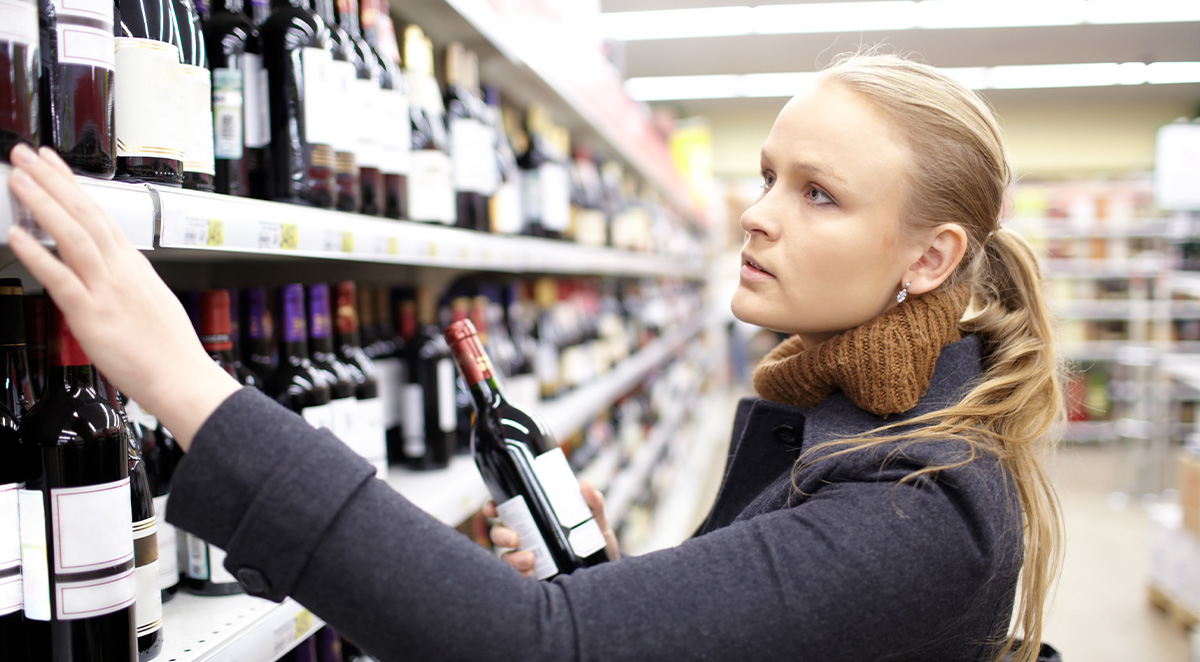Understanding Wine Buying Etiquette: How To Navigate a Wine Store Like a Pro
When you enter a wine shop, it's easy to feel overwhelmed by the sheer number of bottles lining the shelves. Here are some tips on how to navigate the store with confidence and etiquette that will enhance your experience and help you make the best selection.
- Ask for Assistance: A good wine shop will have knowledgeable staff eager to help you find the perfect bottle. Don't be shy—engage with them and ask questions.
- Be Honest About Your Knowledge Level: Let the staff know if you are a beginner or if you have limited knowledge about wine. This will allow them to provide tailored suggestions without overwhelming you with jargon.
- Be Open to New Suggestions: Even if you think you know what you want, be open to trying something new based on recommendations.
- Respect Your Budget: It's helpful to have a budget in mind. Being upfront about how much you'd like to spend will help the staff guide you accordingly without putting you in an awkward position.
Key Questions To Ask When Buying Wine
1. What Wine Pairs Best With My Meal?
When buying wine, one of the most important considerations is what food you'll be serving with it. Wine and food pairing can elevate your dining experience, so asking a professional for recommendations is a smart move.
- Pairing Basics: Generally, white wines pair well with lighter dishes like seafood and poultry, while red wines complement heavier meals like steak or pasta with red sauce. However, there are always nuances to these rules.
- Get Specific: If you know the exact dish you're serving, share the details. For example, if you’re making grilled salmon with a lemon-butter sauce, the wine specialist can help you select a bottle that complements those flavors.
2. How Sweet or Dry Is This Wine?
Sweetness is a major factor in determining whether you enjoy a particular bottle of wine. Here’s what to ask:
- Dry vs. Sweet: If you prefer wines that aren't sweet, ask for recommendations on dry wines. On the other hand, if you enjoy sweetness, let the salesperson know so they can direct you to options like Riesling or Moscato.
- Level of Sweetness: Even within categories, wines can vary in sweetness. A Riesling, for instance, can range from very dry to very sweet. Asking about the level of sweetness can help avoid surprises.
3. Can You Recommend a Good Value Wine?
Contrary to popular belief, good wine doesn't have to be expensive. Wine experts often have great suggestions for affordable wines that still deliver an excellent experience.
- Regional Recommendations: Ask if there are any underrated regions that produce great wines at a lower price point. Often, lesser-known wine regions produce high-quality bottles at a fraction of the cost of well-known ones.
- Personal Favorites: Wine store staff often have personal favorites that are not only affordable but also offer unique flavor profiles.
4. What Vintage Should I Choose?
The vintage of a wine—the year the grapes were harvested—can greatly affect the wine's flavor and character.
- Ask About Recent Vintages: Depending on the grape and region, certain years can produce better wine. Ask which vintages were particularly good for the type of wine you're considering.
- Aging Potential: If you plan to store the wine for a special occasion, ask about how well it will age. Some wines are best consumed young, while others improve with time.
5. What Is the Flavor Profile of This Wine?
A wine's flavor profile can give you an idea of what to expect before purchasing. Ask about the wine's aromas, flavor notes, and body.
- Aromas and Notes: Terms like "notes of blackberry and vanilla" or "aromas of citrus and apple" can help you decide whether a wine aligns with your preferences.
- Body of the Wine: Ask whether the wine is light, medium, or full-bodied. A full-bodied wine is heavier on the palate and pairs well with rich foods, whereas a light-bodied wine is more refreshing and versatile.
Choosing Wine Based on Personal Preferences
6. What Types of Wine Are Similar to This One?
If you've enjoyed a specific wine in the past, use that as a reference point when buying something new.
- Similar Wines: Ask if the wine specialist can recommend something similar in flavor profile to wines you already like. They may introduce you to a different varietal or region that offers a comparable experience.
- Exploring New Varietals: If you know you like a grape such as Chardonnay, ask if there are other varietals with similar characteristics that you might enjoy. You might end up finding a new favorite.
7. Is This Wine Oaked or Unoaked?
The oak aging process can significantly influence a wine's flavor, often adding notes like vanilla, spice, and smoke.
- Preference for Oak: If you prefer wines that are creamy and buttery, such as an oaked Chardonnay, make sure to ask whether the wine has undergone oak aging.
- Seeking Freshness: If you like crisp and clean flavors, ask for unoaked varieties, which tend to preserve the natural freshness of the fruit.
8. What Temperature Should I Serve This Wine?
Serving wine at the right temperature can make a big difference in how it tastes.
- Serving Recommendations: Ask the expert how to best serve the wine you’re buying. Reds are generally served at slightly below room temperature, while whites and rosés are best enjoyed chilled.
- Storage Tips: If you're not planning to drink the wine right away, ask about proper storage. This will ensure your bottle maintains its quality until you're ready to enjoy it.
9. What Are the Tannins Like in This Wine?
Tannins are compounds in wine that create a drying sensation in your mouth. They are most commonly found in red wines.
- High Tannin vs. Low Tannin: If you enjoy bold, structured wines, look for wines with high tannin levels. If you prefer something smoother and less astringent, ask for wines with lower tannins.
- Food Pairings for Tannins: Tannins can help cut through the richness of fatty dishes, making them a great match for steak or cheese. If you're looking for a wine to pair with specific dishes, understanding the tannin level can help make the perfect match.
10. How Sustainable Is This Wine?
With more emphasis on sustainability, many people are interested in wines made using environmentally friendly practices.
- Organic or Biodynamic: Ask if the wine is organic or biodynamic. These wines are made with fewer chemicals, which can appeal to those who prioritize sustainability.
- Sustainable Certifications: Some wines carry certifications that indicate sustainable practices. Don’t hesitate to inquire about the winery's efforts to minimize environmental impact.
Common Wine-Buying Mistakes and How To Avoid Them
11. Should I Judge by the Label?
It’s tempting to buy a bottle based on its attractive label, but this can be misleading.
- Focus on Content, Not Design: Instead of focusing solely on the aesthetics of the label, ask the salesperson about the wine’s characteristics, the winery, and the winemaking process.
- Label Clues: However, there are often clues on the label, such as the region and grape varietal, that can give insights into the wine’s flavor and quality.
12. Is This Wine Ready To Drink?
Not all wines are ready to be opened right after purchase. Some may need to age, while others are best consumed right away.
- Ready-to-Drink Wines: If you need a bottle for immediate consumption, ask if it’s ready to drink now. Many wines are made for quick enjoyment, but some might need time to develop their full potential.
- Aging Potential: If you're adding to your wine cellar, ask whether the wine will improve with age or if it’s best consumed within a year or two.
13. How Will This Wine Evolve Once Opened?
Wine changes once it is opened, and the way it evolves can enhance or detract from your enjoyment.
- Decanting Needs: Ask whether the wine needs to be decanted. Decanting can help some wines open up and reveal more complex flavors.
- How Long It Keeps: Also ask how long the wine will keep once opened. Some wines maintain their quality for several days, while others are best enjoyed immediately.
What To Consider When Shopping for Wine Gifts
14. What Wine Makes a Good Gift?
Selecting wine as a gift can be tricky, especially if you don’t know the recipient’s preferences.
- Versatile Wines: Ask for recommendations on versatile wines that appeal to a broad range of tastes. Wines like Pinot Noir and Sauvignon Blanc are often crowd-pleasers.
- Consider the Occasion: Whether it’s a birthday, anniversary, or a housewarming, share the context with the wine expert to help them suggest an appropriate bottle.
- Presentation Tips: Consider asking for advice on presentation—perhaps a nice wine bag or pairing the wine with a small item like a cheese or chocolate.
Insider Tips: Wine Etiquette When Shopping
15. Engage With the Wine Specialist
Wine specialists are there to help, and they love sharing their knowledge. Engaging with them politely and asking relevant questions can greatly enhance your wine-buying experience. Always:
- Ask for Clarifications: If there is a term you don’t understand—like "terroir" or "malolactic fermentation"—don’t hesitate to ask for an explanation. The more you understand, the better your choices will be.
- Request Tasting Options: If the shop offers tastings, don't shy away from trying a sample. Tasting is the best way to understand what you like and don’t like in a wine.
16. Don't Feel Pressured to Buy Expensive Bottles
- Set a Budget: There’s no shame in setting a budget for your wine purchase. Letting the specialist know your price range helps them direct you to the best options within your means.
- Value Over Price: Sometimes, the most expensive bottle isn't the best. Be open to exploring less costly options that still offer great quality and flavor.
17. Take Notes
- Jot Down Favorites: If you taste a wine in-store or buy one you enjoy, take note of the producer, vintage, and varietal. This information is invaluable for future purchases.
- Wine Journal: Keeping a small wine journal, either on paper or digitally, can help you remember your preferences and build your wine knowledge over time.
Enhancing Your Wine-Buying Experience at Metro Wines in Asheville, NC
Wine buying doesn't have to be intimidating. By asking the right questions and engaging with the wine experts at your local store, you can significantly enhance your experience. Whether you're buying a bottle for a special meal, as a gift, or just for casual sipping, the key is to ask questions that help you understand more about what you're buying.
Don't hesitate to reach out to knowledgeable professionals who are passionate about wine and eager to help. Each question you ask brings you closer to finding the perfect bottle—one that suits your taste, budget, and occasion.
For those eager to learn more about wine, wine etiquette, and food pairing, consider visiting us at Metro Wines. Our experts are ready to help you navigate the intricate world of wine with confidence and ease. Learn more about our wine classes and deepen your wine knowledge here: Metro Wines Asheville School of Wine.


